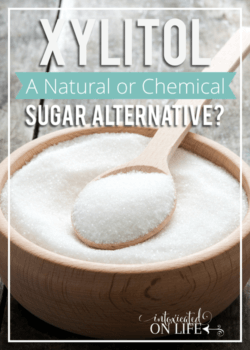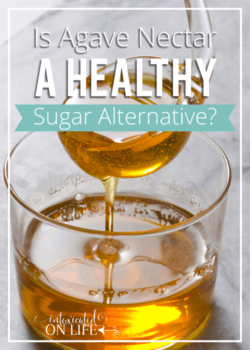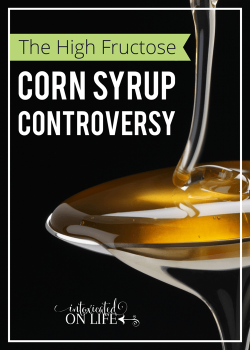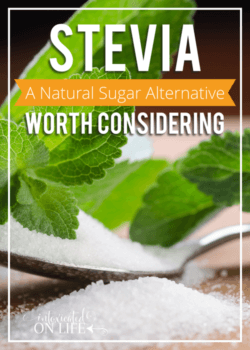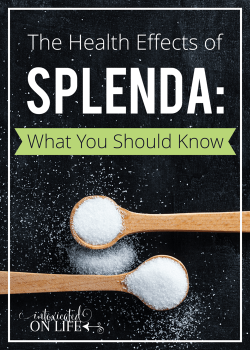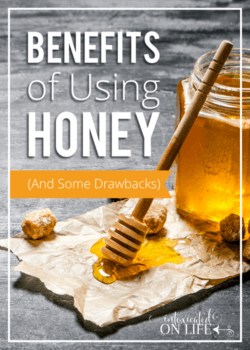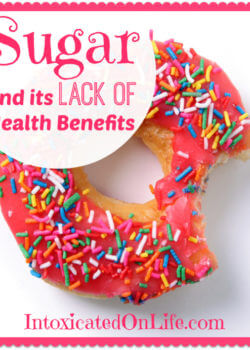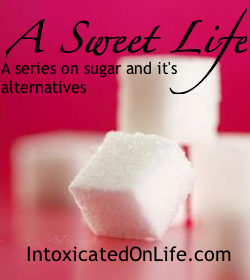The word xylitol causes me to conjure up images of a chemically laden substance. But, xylitol makers have slapped the word "natural" all over bags of xylitol that you find sitting on store shelves. And indeed, it is classified as a natural sweetener. Is xylitol really natural? Or is it just another wolf is sheep's clothing like high fructose corn syrup? What is Xylitol? Xylitol was discovered late in the 1890's. It wasn't until the 1930's that xylitol was synthesized into a pure form, much like what we use today. It was used as a sugar replacement during World War II in some countries when sugar shortages ...Read More
sweet life
A Sweet Life: Is Agave Nectar a Healthy Sugar Alternative?
Organic. Raw. Natural. Low Glycemic Index. Healthy. These are all adjectives you may have heard used to describe agave nectar (also known as agave syrup). The adjectives I would use to describe the agave nectar marketers are: Clever. Brilliant. Cunning. Shrewd. Deceptive. Agave Nectar in Ancient Cultures Agave nectar, or the sap from one of several species of the agave plant, has been used in ancient traditional cultures for centuries. These cultures would use the sap from the leaves of the agave plant to dress wounds and fight skin infections. It was perceived that the fresh nectar from the agave plant was not ...Read More
A Sweet Life: The High Fructose Corn Syrup Controversy
High fructose corn syrup isn't likely something you'll be sweetening your homemade cookies with, so why is it included in this series about sweeteners? 1. Because of the ubiquitous presence of high fructose corn syrup in foods and drinks, I felt it earned a rightful place in this series. It is found in a great many foods you purchase at the grocery store—yogurt, salad dressing, cereal, protein bars, snack foods, fruit drinks, pop, soups, fruit snacks, bread, cookies, condiments, crackers, candy, and the list goes on and on... 2. There is much controversy surrounding high fructose corn syrup's healthfulness or ...Read More
A Sweet Life: Stevia – A Natural Sugar Alternative
The sweet leaves of the stevia plant (Stevia Rebaudiana Bertoni) have been used as a sweetener in cultures in South America for centuries, but it has not been until recently that Stevia has been marketed in the US for that purpose. Stevia is calorie-free, carbohydrate-free, and truly a natural sugar alternative. So, what's the catch? There is no catch. Research on Stevia Widely use in Japan for over 40 years, stevia makes up 40% of the sweetener market. In fact, Japan is the largest consumer of stevia. It was not until December of 2008 that the FDA granted approval for a compound in stevia (rebaudioside A) to ...Read More
A Sweet Life: Health Effects of Splenda
Splenda has taken the market by storm since it's introduction in the US in 1999. It has overtaken Equal as the artificial sweetener of choice. In 2006 Splenda earned $212 million in the US. Even if you don't purchase Splenda, it's primary ingredient sucralose is probably in a number of products you already consume including: yogurt, ice cream, jelly, sugar-free drinks, canned fruits, nutrition bars, sugar-free cookies, and other snack foods. Given the popularity and the predominance of Splenda in many foods purchased at the grocery store, I think it's worth taking a good look at this controversial sweetener. Is ...Read More
A Sweet Life: Benefits of Honey (and some drawbacks)
What are the benefits of honey? Let's take a closer look at this natural sweetener. Honey is sweet and wonderful and all the rage right now. Everyone I know has read some article about the wonderful health benefits of honey, but it can get a bit complicated. We're going to examine all of the benefits and drawbacks of using honey in this post. We'll sift the truth from the hype and also give you some pointers on how to substitute honey for sugar in your recipes. Health Benefits of Honey Honey has been used for generations and in many different cultures as a remedy for many health ailments. I heard ...Read More
A Sweet Life: Sugar and Its (Lack of) Health Benefits
Sugar...we have a sweet, sweet love affair with you. You're in so much of our food. You taste so good, you make us feel good, we constantly seek you out. You must be good, right? Nope. Sugar has no nutritional value—there is nothing that your body needs that is found in sugar. There are no vitamins, minerals, or enzymes that can benefit your body in any way. Furthermore, sugar can wreck havoc on your body in many many ways. The consumption of sugar has been linked to a plethora of modern diseases: diabetes, obesity, cancer, hypertension, depression, headaches, acne, fatigue, hardening of the arteries, and high blood ...Read More
A Sweet Life: A blog series about sugar and sugar substitutes
Despite trying to follow a very low-carb ketogenic diet, I still have a sweet tooth. My kids do, too. I want to keep my insulin response low, lose weight, decrease the inflamation in my body, and be healthy, but I don't want to give up sweets completely. What's a girl to do? Whether or not you know it, there are a plethora of sugar substitutes on the market. Some taste better than others, some cause a greater insulin response, and some have health benefits you may not know about. In this series I'm going to be exploring the pros and cons of sugar and its alternatives. We'll discuss sugar, honey, maple syrup, sugar ...Read More

